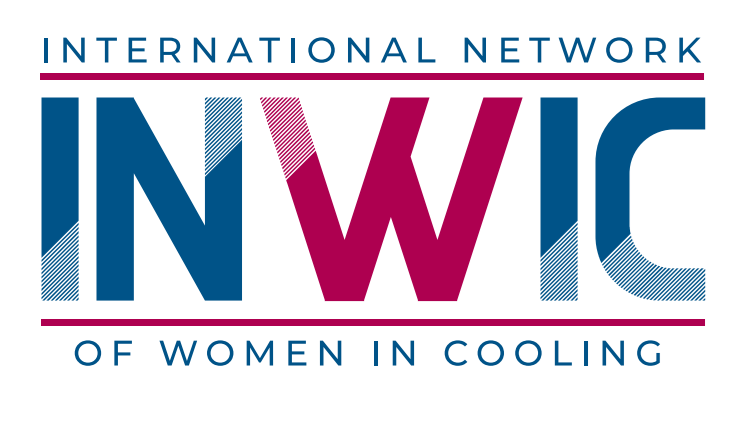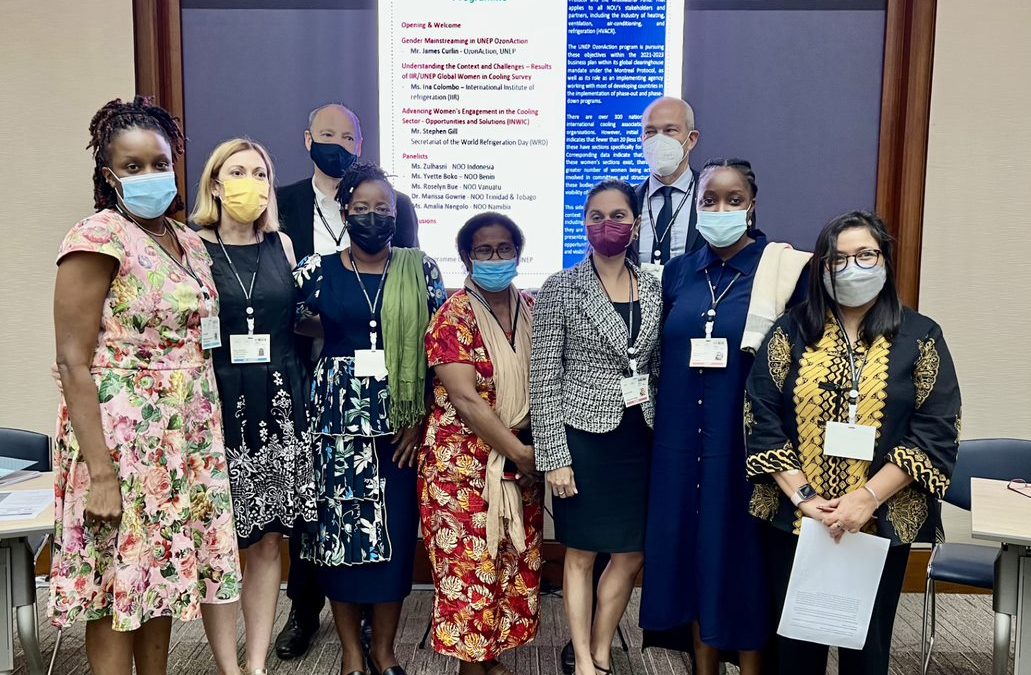Bangkok – UN Environment Programme (UNEP) OzonAction organized a side event on “Women in Cooling – Challenges and Opportunities” on 11 July during the forty-fourth meeting of the Open-ended Working Group of the Parties to the Montreal Protocol. This forum, the first of its kind, initiated a discussion about the context of women in cooling worldwide including the challenges they face in their careers, previewed an important global survey on this subject, and presented a new global initiative to support opportunities for women, more engagement and visibility within the cooling sector. The side event is part of a broader discussion that UNEP OzonAction is having both internally and with its partners on how to further incorporate gender mainstreaming into the work of the Montreal Protocol. The meeting was well attended by 93 participants (female 55, male 38).
The focus on the cooling sector comes from the fact that it represents the major users of refrigerant gases controlled under the Montreal Protocol. The quality of the workforce, including its skill level and technical capacity, is essential for introducing new environmentally-friendly technologies that enable national compliance with this international treaty. The refrigeration, air conditioning and heat pump (RACHP) sector thus represents strategic partners for the National Ozone Units (NOUs) in developing countries for the Montreal Protocol and an inseparable part of the hydrochlorofluorocarbon (HCFC) phase-out and future hydrofluorocarbon (HFC) phase down process. However, women are largely underrepresented in this field and have the potential to contribute significantly to the success of the RACHP sector, including environmental protection.
Mr. Jim Curlin, UNEP OzonAction Head of Branch, gave a short overview of how OzonAction is including gender considerations in its own work and the specific services it is developing with its various partners. Participants heard about the context and the challenges that women in the field are facing from Dr. Ina Columbo, Deputy Director-General of the International Institute of Refrigeration (IIR). She presented the preliminary results of the first Global Survey of Women in RACHP, which are based on inputs received from 810 women worldwide. Mr. Steve Gill, Founder of the World Refrigeration Day, presented solutions and opportunities to advance women’s engagement in the cooling sector that will be offered through the newly-established International Network of Women in Cooling (INWIC).
These presentations were followed by a panel session of National Ozone Officers from different regions – Ms. Bitul Zulhasni – Indonesia; Ms. Yvette Boko-Benin, Ms. Roselyn Bue – Vanuatu, Dr. Marissa Gowrie – Trinidad & Tobago, and Ms. Amalia Nangolo – Namibia – who provided their views on both challenges and opportunities to women in the RACHP field in their countries. They supported their interventions with real-world examples and inspired the audience to join the discussion.
The ensuing exchanges revealed that the main challenges that women in this sector are facing are maintaining work-life balance, limited career advancement opportunities, stereotypes about women working in the field both from company owners and from the customers, lack of female colleagues and lack of access to training. Some of the opportunities were identified (many of which will be offered through INWIC) including networking, exchange of information and capacity building for women RACHP professionals, both through mentorship and internship platforms.
Gender mainstreaming and promoting active and equal engagement of women in the Montreal Protocol implementation are key objectives of the Multilateral Fund and its Implementing Agencies, including UNEP OzonAction. That applies to the NOU’s stakeholders and partners, including the industry of heating, ventilation, air-conditioning, and refrigeration (HVACR). Gender mainstreaming is an important thematic focus area under UNEP’s Compliance Assistance Programme (CAP) strategy and annual workplan.
Image and article originally posted by UNEP OzonAction. See the article here.

